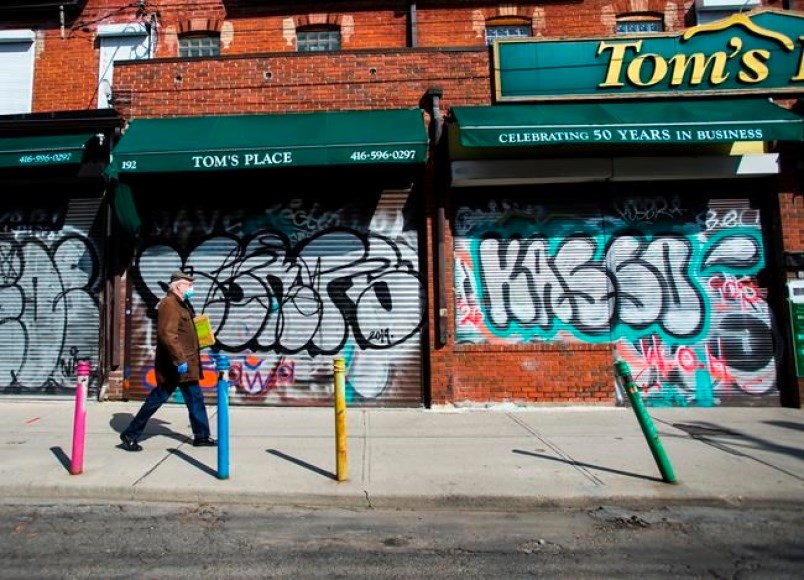TORONTO — Canadian small businesses struggling during the COVID-19 pandemic will incur an estimated $117 billion in debt that could take more than a year to pay off, according to a new study.
The Canadian Federation of Independent Business surveyed more than 4,500 small business owners online from June 26 to July 2 and found that 2,100 respondents took on an average $135,000 in debt ($285.4 million for the responding group as a whole).
Laura Jones, the executive vice-president of the organization that represents at least 110,000 small businesses, said debt has ballooned as 58 per cent of small businesses re-opened fully.
About 35 per cent are back to full staffing but only 24 per cent are back to normal revenue, she said.
"I've talked to many businesses that are open again, but are worried about being able to outrun the debt they have accumulated, particularly with sales still down," Jones said in a statement.
At the national level, that debt amounts to billions of dollars.
To finance COVID-19 revenue shortfalls and extra costs, the CFIB survey found 37 per cent of businesses are relying on personal savings, 34 per cent on credit cards, 18 per cent on bank loans, 11 per cent on retirement savings and 9 per cent each on mortgages and loans from families and friends.
Josie Rudderham, a co-owner of Cake and Loaf Bakery in Hamilton, Ont., wasn't surprised by the findings because her 12-year-old company was hit hard when COVID-19 began.
Cake and Loaf temporarily closed one location, permanently shut down a second and laid off workers right as the company's busiest season — Easter — hit. It emptied out what treats it had ready for sale and sent them home with employees or over to health care workers and food banks.
"A lot of expenses didn't stop, the overhead really didn't slow down that much, insurance itself is a big chunk of what we pay and that didn't get reduced. In fact, it went up," she said.
Rudderham, who has since reopened a location for curbside pickup, had to take out a loan to deal with cash flow issues and said many of her fellow small business owners did the same because they don't have the cash reserves larger companies do.
"I anticipate it will take us more than a decade to pay off some of this debt that we've had to take on because we are never aiming for profit," she said. "We're aiming to break even every year and then every year we also increase wages because living wage gets recalculated every year."
James McIntosh, the founder of Meaford, Ont.-based Duxbury Cider and chair of the Ontario Craft Cider Association, also stumbled on troubles when bars and restaurants were forced to close in March.
Duxbury's sales dropped 53 per cent, but McIntosh still considered himself fortunate because his family operates the farm and only has a few workers on staff.
He took out a loan and later, when patios reopened saw about a fifth of his licensed business came back.
Others borrowed money and didn't have such luck. They could be trying to cover what they lost for far longer, he said.
"Some of the smaller guys were really hurt because they didn't have an LCBO or grocery store (selling arrangement)," he said. "They were basically relying on what business they could drum up locally with bars and restaurants."
According to the polling industry's generally accepted standards, online surveys cannot be assigned a margin of error because they do not randomly sample the population.
This report by The Canadian Press was first published July 15, 2020




